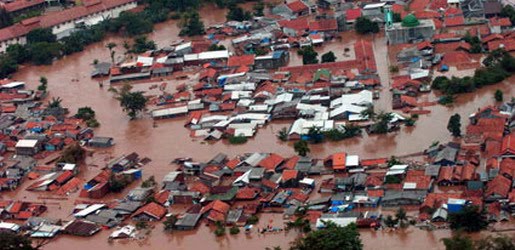Earthquake
An earthquake (also known as a quake, tremor or temblor) is the result of a sudden release of energy in the Earth's crust that creates seismic waves.

Tsunami
A tsunami also called a tsunami wave train, and at one time incorrectly referred to as a tidal wave, is a series of water waves caused by the displacement of a large volume of a body of water, usually an ocean, though it can occur in large lakes.

Tornado
A tornado (often referred to as a twister or, erroneously, a cyclone) is a violent, dangerous, rotating column of air that is in contact with both the surface of the earth and a cumulonimbus cloud or, in rare cases, the base of a cumulus cloud.

Floods
A flood is an overflow of an expanse of water that submerges land. The EU Floods directive defines a flood as a temporary covering by water of land not normally covered by water

Volcanic Eruptions
Volcanoes can cause widespread destruction and consequent disaster through several ways. The effects include the volcanic eruption itself that may cause harm following the explosion of the volcano or the fall of rock.

Flood Effects
7:18 AM
Posted by Disaster
Primary effects
- Physical damage – Can damage any type of structure, including bridges, cars, buildings, sewerage systems, roadways, and canals.
Secondary effects
- Water supplies – Contamination of water. Clean drinking water becomes scarce.
- Diseases – Unhygienic conditions. Spread of water-borne diseases.
- Crops and food supplies – Shortage of food crops can be caused due to loss of entire harvest. However, lowlands near rivers depend upon river silt deposited by floods in order to add nutrients to the local soil.
- Trees – Non-tolerant species can die from suffocation.
Tertiary/long-term effects
Economic – Economic hardship, due to: temporary decline in tourism, rebuilding costs, food shortage leading to price increase, etc.